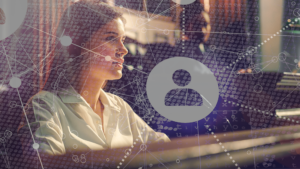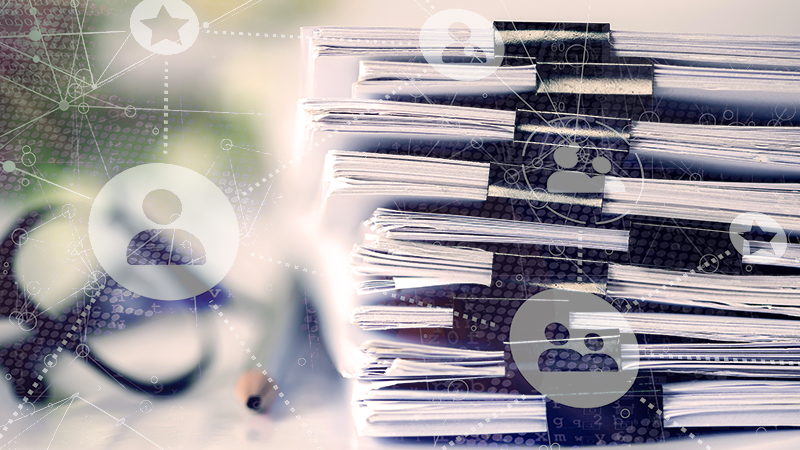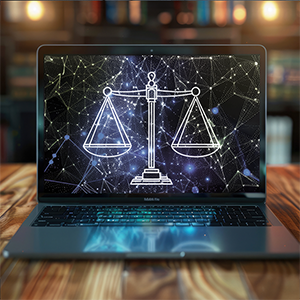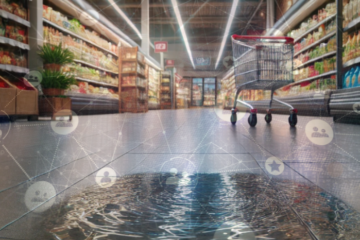Introduction
In slip, trip, and fall legal cases, building code expert witnesses provide essential expertise that can help determine liability and establish negligence. Their in-depth understanding of construction standards, safety regulations, and building codes can be pivotal in legal proceedings. By analyzing code compliance and identifying potential violations, these experts help clarify complex technical issues and support legal arguments. This blog explores the role of building code expert witnesses in slip, trip, and fall cases and how their insights can strengthen legal strategies for attorneys.
What is a Building Code Expert Witness?
Definition and Responsibilities
A building code expert witness is a professional with specialized knowledge of construction codes, safety regulations, and standards that govern building practices. Their role in legal cases includes:
- Analyzing Code Compliance: Reviewing construction practices, maintenance records, and safety measures to assess whether the property complies with relevant local, state, and national building codes.
- Expert Testimony: Providing clear and understandable explanations of technical code issues for judges and juries, often helping to establish whether a violation occurred.
- Report Preparation: Drafting comprehensive reports that detail their findings, including any code violations and their implications for the safety of the premises.
- Consultation with Legal Teams: Offering guidance to attorneys on the technical aspects of building codes relevant to the case.
Understanding Slip, Trip, and Fall Cases in the U.S.
Legal Framework for Premises Liability
Slip, trip, and fall cases are categorized under premises liability law, which requires property owners to maintain a safe environment. In such cases, the injured party must prove that:
- Duty of Care: The property owner was obligated to ensure the premises were safe.
- Breach of Duty: The property owner failed to address a known hazard or did not act reasonably to prevent a potential danger.
- Causation: The unsafe condition directly caused the injury.
- Damages: The injured party experienced actual harm, such as physical injuries or financial loss.
How Building Code Expert Witnesses Help Prove Liability
Establishing Code Violations
Building code experts can be instrumental in proving negligence by identifying violations that contributed to unsafe conditions. Common areas where violations may occur include:
- Flooring Materials: Building codes often specify which flooring materials to use to minimize slip hazards. If a property fails to use slip-resistant materials in areas prone to moisture, it may be in violation of safety standards.
- Inadequate Lighting: Poor lighting can obscure hazards, increasing the risk of falls. Experts can assess whether lighting levels meet the required safety standards outlined in building codes.
- Improper Drainage: Water accumulation on floors can lead to slippery conditions. Building codes may specify requirements for drainage systems, and a failure to comply can result in liability.
To prove negligence, demonstrating that a property owner failed in their duty of care by not complying with applicable building codes is essential. A building code expert can:
- Link Code Violations to Hazardous Conditions: Show how specific violations created or contributed to dangerous conditions that led to the incident.
- Identify Patterns of Negligence: Review maintenance logs and inspection records to determine if there was a history of code violations or insufficient safety measures.
Importance of Building Code Compliance in Slip, Trip, and Fall Cases
Common Violations and Their Impact
Building code expert witnesses frequently identify a range of violations that can contribute to slip, trip, and fall incidents, such as:
- Uneven Surfaces: Flooring surfaces not meeting flatness requirements can cause trips.
- Obstructed Pathways: Failure to maintain clear pathways, particularly in emergency exits, can violate safety codes and create hazards.
- Insufficient Handrails on Stairs: Building codes typically require handrails for stairs of a certain height. Absence or inadequacy of handrails can contribute to falls and violate safety codes.
How Compliance Affects Legal Outcomes
Maintaining compliance with building codes can strengthen a defense in slip and fall cases, as it shows that the property owner took reasonable steps to ensure safety. Conversely, code violations can serve as evidence of a breach of duty, supporting the plaintiff’s case.
Real-World Examples of Slip, Trip, and Fall Cases Involving Building Code Experts
Case 1: Hernandez v. City of Los Angeles
In Hernandez v. City of Los Angeles, a building code expert testified that the city failed to maintain its sidewalks in compliance with municipal standards, leading to an uneven surface that contributed to the plaintiff’s fall. This testimony helped establish the city’s liability for negligence.
Case 2: Miller v. Walmart
A customer slipped and fell in a Walmart store due to a change in floor elevation. The building code expert demonstrated that the store had failed to comply with accessibility codes by not providing adequate warnings about the elevation change. The expert’s testimony was instrumental in securing a favorable outcome for the plaintiff.
Case 3: Johnson v. Local Restaurant
In this case, a customer suffered injuries due to poor lighting in a restaurant’s entryway. A building code expert assessed the lighting conditions and found they did not meet the local building code requirements for public establishments. This evidence strengthened the plaintiff’s case by showing that the restaurant failed to sustain a safe environment.
How to Choose a Qualified Building Code Expert Witness
Essential Qualifications
When selecting a building code expert witness, it is important to consider their qualifications, such as:
- Educational Background: A degree in architecture, civil engineering, construction management, or a related field.
- Professional Certifications: Certifications like Certified Building Official (CBO) or Professional Engineer (PE) can indicate an expert’s knowledge and expertise in building codes.
- Industry Experience: Extensive experience in construction, building inspections, or code enforcement can make an expert’s testimony more credible.
Evaluating Expertise and Credibility
To ensure an expert is suitable for the case, attorneys should evaluate:
- Courtroom Experience: Experts who have testified in similar cases may be more effective in explaining technical details to the court.
- Analytical Skills: The ability to thoroughly assess construction documents, maintenance records, and building conditions is essential.
- Communication Skills: An expert witness should be able to convey complex technical concepts simply for judges and juries to understand.
Benefits of Using Building Code Expert Witnesses in Legal Cases
- 1. Clarifying Complex Technical Issues: Building code experts are crucial in translating complex regulatory language into understandable terms. Their ability to explain how specific code violations contributed to unsafe conditions is essential in persuading the court.
- 2. Supporting Settlement Negotiations: A well-prepared expert report can be a powerful tool during settlement negotiations. If the report identifies building code violations, it may prompt insurance companies to offer a fair settlement to avoid trial.
- 3. Countering Defense Arguments: Defendants often argue that they were unaware of hazardous conditions or took reasonable steps to prevent accidents. A building code expert can counter these arguments by showing how specific code violations indicate negligence or inadequate maintenance.
- 4. Enhancing Credibility in Court: Expert testimony adds weight to the plaintiff’s case. Courts often rely on the insights of building code experts when determining liability in cases involving complex technical issues.
The Role of Building Codes in Preventing Slip, Trip, and Fall Accidents
Public Safety Standards
Building codes protect the public by setting minimum safety standards for building design, construction, and maintenance. These standards address:
- Structural Integrity: Ensuring that floors, stairs, and other structures are built to withstand expected loads.
- Fire Safety: Mandating proper exit routes and fire-resistant materials.
- Accessibility: Requiring features like handrails, ramps, and adequate lighting.
How Codes Evolve to Meet New Challenges
Building codes are updated occasionally to reflect new safety concerns, construction materials, and building practices. Staying current with code changes is essential for property owners and legal professionals.
Challenges Faced by Building Code Experts in Legal Cases
Navigating Different Jurisdictional Codes
Building codes vary across jurisdictions, making it challenging for experts to apply consistent standards in legal cases. Experts must be familiar with local and state codes that may impact a case.
Proving Causation in Complex Situations
In some cases, establishing a direct link between a code violation and the incident can be challenging, especially when multiple factors are involved. Building code experts must provide clear and compelling evidence to support causation.
Common Issues Addressed by Building Code Expert Witnesses in Slip, Trip, and Fall Cases
- Surface Conditions: Building code experts assess whether flooring materials and surface conditions comply with safety regulations, including evaluating slip resistance, material choice, and maintenance practices.
- Lighting Standards: Experts may determine if lighting levels in hallways, entryways, or other areas meet code requirements. Poor lighting can obscure hazards and increase the likelihood of falls.
- Handrail and Stairway Compliance: Building codes often specify the placement and dimensions of handrails on stairways. Non-compliance can contribute to falls, and experts can assess whether the property adhered to these requirements.
Conclusion
Building code expert witnesses are invaluable in slip, trip, and fall cases, where their expertise can help establish liability and clarify complex technical issues. By identifying code violations, explaining their impact, and providing credible testimony, these experts strengthen legal arguments and enhance the chances of favorable outcomes for injured parties. As slip and fall incidents remain a significant concern, building code experts are essential in upholding safety standards and ensuring justice is served in premises liability cases.
Read more:
- National Institute of Standards and Technology | Understanding Building Codes
- New York City Bar | Slip/Trip & Fall

Are you an Attorney?
We’re here to help! Let us connect you with qualified professionals who are available for depositions and testimonies. Our database includes over 15,000 experts with a wide range of specialties. Reach out today to fast-track your search for an expert witness.







